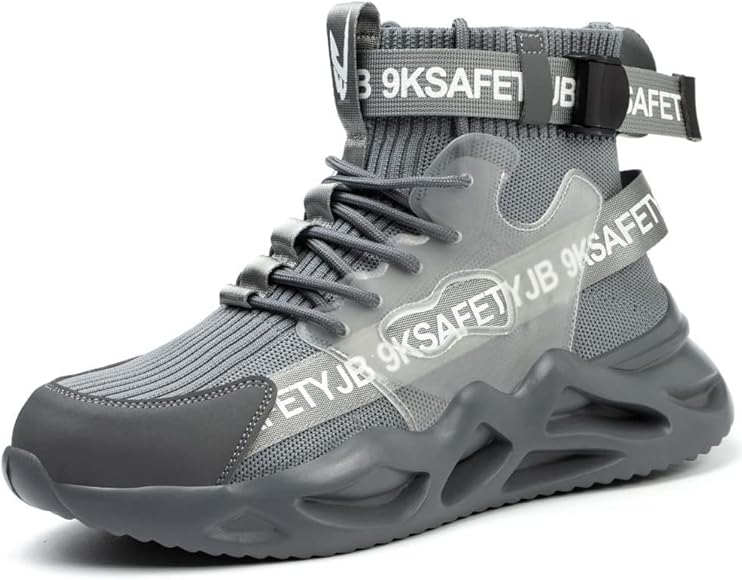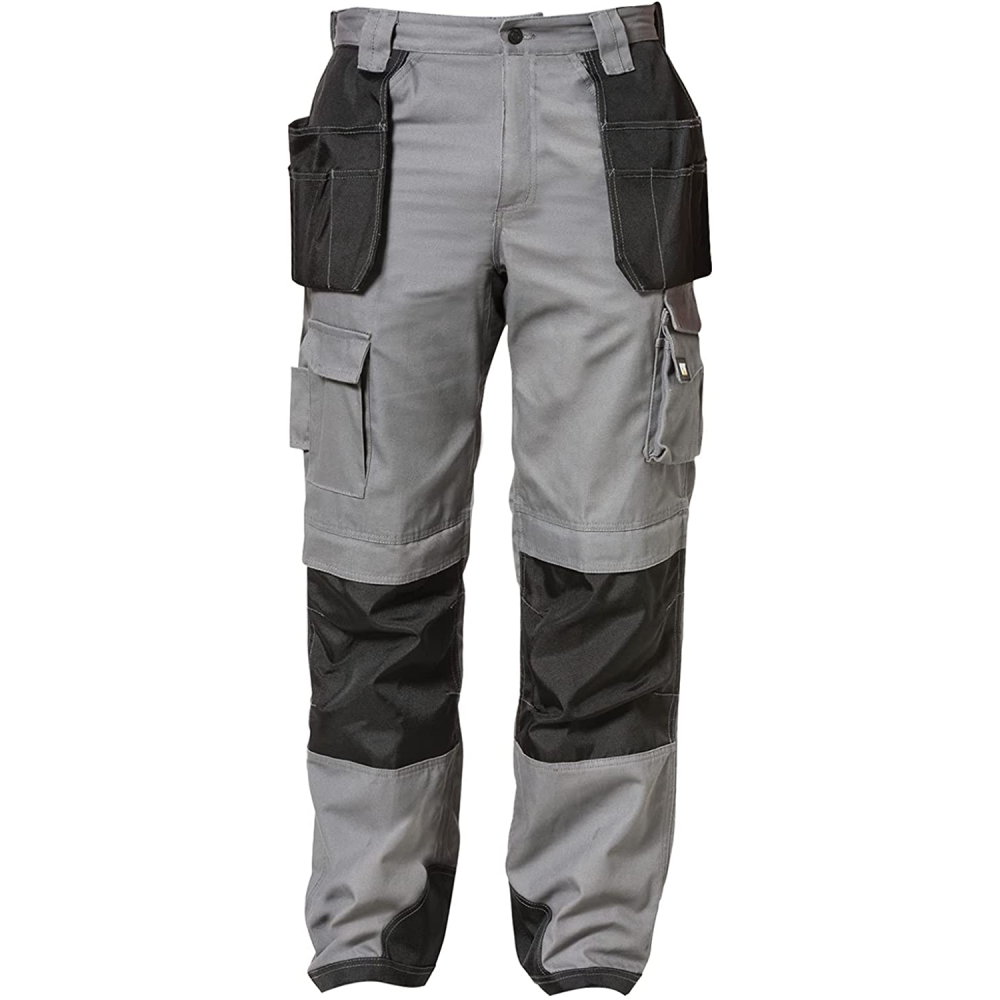
Lightweight work shoes are designed to provide comfort and support for workers who are on their feet for long periods of time. They are typically made from breathable materials, such as mesh or canvas, and have a lightweight, flexible sole. This makes them ideal for jobs that require a lot of walking or standing, such as retail, hospitality, and healthcare.
In addition to being comfortable, lightweight work shoes can also help to improve worker safety. They can provide traction on slippery surfaces, and protect the feet from punctures and other hazards. Some lightweight work shoes are also designed to be water-resistant or waterproof, which can be important for jobs that involve working in wet or outdoor environments.
If you are looking for a comfortable, supportive, and safe pair of work shoes, then lightweight work shoes are a great option. They are available in a variety of styles and colors, so you can find a pair that fits your needs and preferences.
1. Comfort
Comfort is an essential consideration when choosing lightweight work shoes. Workers who are on their feet all day need shoes that will provide support and cushioning, without causing discomfort or fatigue. A cushioned insole can help to absorb shock and reduce pressure on the feet, while a breathable upper will help to keep the feet cool and dry.
Lightweight work shoes that are comfortable to wear can have a number of benefits for workers. They can help to improve productivity by reducing fatigue and discomfort. They can also help to prevent injuries, such as plantar fasciitis and heel spurs. In addition, comfortable shoes can help to improve morale and job satisfaction.
Here are some real-life examples of how comfortable lightweight work shoes can make a difference:
- A nurse who works 12-hour shifts on her feet finds that comfortable lightweight work shoes help her to stay comfortable and focused throughout her shift.
- A construction worker who spends his days on his feet finds that comfortable lightweight work shoes help to prevent foot pain and fatigue.
- A retail worker who is constantly on her feet finds that comfortable lightweight work shoes help her to stay energized and productive throughout the day.
These are just a few examples of how comfortable lightweight work shoes can make a difference in the lives of workers. By choosing the right pair of shoes, workers can improve their comfort, safety, and productivity.
2. Support
In any job that requires, having the right pair of shoes is essential to maintaining foot health and comfort. Lightweight work shoes can provide the support and stability you need to get through your shift without pain or fatigue.
- Reduced Risk of Injury: A supportive pair of work shoes can help to reduce your risk of developing foot injuries, such as plantar fasciitis, heel spurs, and ankle sprains. This is because a supportive shoe will help to keep your feet in a neutral position and prevent them from rolling inward or outward.
- Improved Balance and Stability: Lightweight work shoes with a supportive sole can help to improve your balance and stability, which is important for preventing falls. This is especially important for workers who work on uneven surfaces or who need to climb ladders or stairs.
- Increased Comfort: Supportive work shoes can help to increase your comfort by reducing pressure on your feet and ankles. This can help to prevent fatigue and keep you feeling energized throughout your shift.
- Improved Productivity: When you’re comfortable and pain-free, you’re more likely to be productive at work. A supportive pair of work shoes can help you to stay focused and get the job done.
If you’re looking for a pair of lightweight work shoes that will provide good support for your feet and ankles, be sure to look for shoes with a sturdy construction and a supportive sole. These shoes will help you to stay comfortable and safe on the job.
3. Protection
Lightweight work shoes are essential for protecting the feet from hazards in the workplace. They can help to prevent punctures, cuts, and slips, which can lead to serious injuries. Here are four key facets of protection that lightweight work shoes should provide:
- Puncture Resistance: Lightweight work shoes should have a durable upper that is resistant to punctures. This is important for workers who are exposed to sharp objects, such as nails or glass. Puncture-resistant shoes can help to prevent serious injuries to the feet.
- Cut Resistance: Lightweight work shoes should also have a cut-resistant upper. This is important for workers who are exposed to sharp objects, such as knives or machinery. Cut-resistant shoes can help to prevent serious cuts and lacerations to the feet.
- Slip Resistance: Lightweight work shoes should have a slip-resistant sole. This is important for workers who work on slippery surfaces, such as wet or icy floors. Slip-resistant shoes can help to prevent slips and falls, which can lead to serious injuries.
- Impact Resistance: Lightweight work shoes should also have impact resistance. This is important for workers who work in environments where there is a risk of falling objects. Impact-resistant shoes can help to protect the feet from serious injuries, such as fractures or crush injuries.
By providing these four key facets of protection, lightweight work shoes can help to keep workers safe on the job. When choosing lightweight work shoes, it is important to consider the specific hazards that you are exposed to in your workplace.
4. Durability
Durability is an essential consideration when choosing lightweight work shoes. Workers need shoes that will withstand the demands of the job, without breaking down or wearing out prematurely. Lightweight work shoes that are durable can save workers money in the long run, as they will not need to be replaced as often.
There are a number of factors that contribute to the durability of lightweight work shoes. These factors include the materials used in the construction of the shoes, the quality of the construction, and the design of the shoes.
The materials used in the construction of lightweight work shoes should be durable and resistant to wear and tear. Common materials used in the construction of lightweight work shoes include leather, nylon, and mesh. Leather is a durable material that is resistant to punctures and abrasions. Nylon is a strong and lightweight material that is resistant to tearing. Mesh is a breathable material that is resistant to moisture and mildew.
The quality of the construction of lightweight work shoes is also important for durability. Lightweight work shoes should be well-made with strong seams and durable materials. Shoes that are poorly made are more likely to break down or wear out prematurely.
The design of lightweight work shoes can also affect their durability. Lightweight work shoes that are designed for specific tasks are more likely to be durable than shoes that are designed for general use. For example, lightweight work shoes that are designed for use in construction are more likely to be durable than shoes that are designed for use in an office.
By considering the factors discussed above, workers can choose lightweight work shoes that are durable and will withstand the demands of the job.
5. Weight
The weight of work shoes is a crucial factor to consider, as it directly impacts the wearer’s comfort and performance. Lightweight work shoes offer several advantages that make them a valuable choice for various occupations.
- Reduced Fatigue: Lightweight work shoes reduce fatigue by minimizing the weight carried on the feet throughout the day. This is particularly beneficial for individuals who stand or walk for extended periods, as it helps prevent muscle strain and discomfort.
- Increased Productivity: Lightweight work shoes enhance productivity by allowing workers to move more freely and efficiently. When shoes are not weighing them down, workers can perform their tasks with greater agility and speed, resulting in increased output.
- Improved Safety: Lightweight work shoes can contribute to safety by reducing the risk of slips and falls. Lighter shoes allow for better balance and control, making it less likely for workers to lose their footing.
- Enhanced Comfort: Lightweight work shoes provide enhanced comfort, especially during long shifts or physically demanding work. They reduce pressure on the feet and ankles, minimizing pain and discomfort, which is essential for maintaining focus and productivity.
In summary, the weight of work shoes plays a significant role in the overall comfort, performance, and safety of workers. Lightweight work shoes offer numerous benefits, including reduced fatigue, increased productivity, enhanced safety, and improved comfort.
Frequently Asked Questions (FAQs) about Lightweight Work Shoes
Lightweight work shoes have gained popularity due to their comfort, support, and protection for workers in various industries. Here are answers to some commonly asked questions about lightweight work shoes:
Question 1: What are the benefits of wearing lightweight work shoes?
Lightweight work shoes offer numerous benefits, including reduced fatigue, increased productivity, enhanced safety, and improved comfort. They are ideal for individuals who stand or walk for extended periods, as they reduce muscle strain and discomfort.Question 2: Are lightweight work shoes suitable for all types of work environments?
While lightweight work shoes are versatile, their suitability depends on the specific work environment and hazards present. For instance, they may not be appropriate for environments with extreme heat, sharp objects, or heavy machinery.Question 3: How do I choose the right size and fit for lightweight work shoes?
Properly fitting lightweight work shoes are crucial for comfort and safety. Measure your feet accurately and consult the manufacturer’s sizing guide to determine the correct size. Ensure that the shoes fit snugly without being too tight or too loose.Question 4: How often should I replace my lightweight work shoes?
The lifespan of lightweight work shoes varies depending on the usage frequency and work environment. Regularly inspect your shoes for signs of wear and tear, such as worn-out soles or damaged uppers. Replace them promptly when necessary to maintain optimal protection and comfort.Question 5: Can I wear lightweight work shoes for both work and leisure activities?
Lightweight work shoes can be comfortable for casual wear; however, they may not be suitable for strenuous activities or uneven terrain. Consider dedicated athletic or hiking shoes for such activities.Question 6: How do I care for my lightweight work shoes?
Proper care can extend the lifespan of your lightweight work shoes. Regularly clean them with a damp cloth or mild detergent to remove dirt and debris. Allow them to air dry completely before storing them in a dry and well-ventilated area.
By addressing these frequently asked questions, we aim to provide a comprehensive understanding of lightweight work shoes and their use in various work environments.
Transition to the next article section: Choosing the Right Lightweight Work Shoes for Your Needs
Tips for Choosing Lightweight Work Shoes
Follow these tips when choosing lightweight work shoes to ensure comfort, support, and protection:
Tip 1: Consider Your Work EnvironmentAssess the specific hazards and conditions of your work environment. Consider factors such as slippery surfaces, sharp objects, and extreme temperatures to determine the appropriate features and materials for your shoes.Tip 2: Choose the Right FitProperly fitting work shoes are essential for comfort and safety. Measure your feet accurately and try on different sizes to find the best fit. The shoes should fit snugly without being too tight or too loose.Tip 3: Prioritize Comfort and SupportLook for shoes with cushioned insoles and supportive soles that provide arch support and shock absorption. Comfortable work shoes help reduce fatigue and prevent foot pain.Tip 4: Opt for Durable MaterialsLightweight work shoes should be made of durable materials that can withstand the demands of your job. Consider materials such as leather, nylon, and mesh that offer a balance of durability, breathability, and protection.Tip 5: Ensure Slip ResistanceSlip-resistant soles are crucial for preventing falls on slippery surfaces. Look for shoes with treads or patterns designed to enhance traction and stability.Tip 6: Consider Special FeaturesDepending on your specific needs, consider work shoes with additional features such as puncture resistance, water resistance, or electrical hazard protection. These features provide enhanced protection against specific hazards.SummaryChoosing the right lightweight work shoes is essential for maintaining comfort, safety, and productivity at work. By considering your work environment, prioritizing fit and comfort, opting for durable materials, ensuring slip resistance, and considering special features, you can find the ideal pair of shoes for your needs.
Transition to the article’s conclusion: With these tips in mind, you can confidently select lightweight work shoes that provide the protection, support, and comfort you need to perform your job effectively.
Conclusion
In conclusion, the exploration of lightweight work shoes in this article has highlighted their crucial role in providing comfort, support, and protection for workers in various industries. These shoes offer numerous advantages, including reduced fatigue, increased productivity, enhanced safety, and improved overall well-being.
Choosing the right pair of lightweight work shoes is essential to ensure optimal performance and minimize the risk of workplace injuries. By considering factors such as the work environment, proper fit, durability, slip resistance, and special features, individuals can make informed decisions that meet their specific needs. Investing in high-quality lightweight work shoes is not only a wise financial decision but also a commitment to personal safety and comfort.
As the workforce continues to evolve, the demand for lightweight work shoes will undoubtedly grow. Manufacturers are constantly innovating to create shoes that are not only protective and supportive but also stylish and comfortable to wear for extended periods. By embracing the latest advancements in footwear technology, workers can enjoy the benefits of lightweight work shoes and perform their jobs more effectively and safely.



